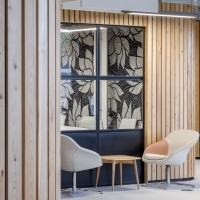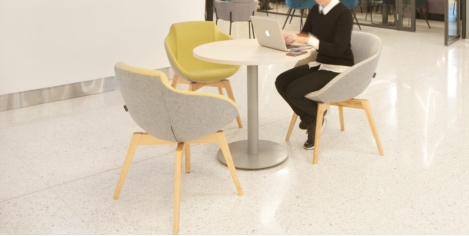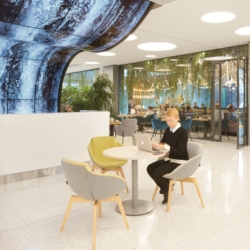October 1, 2020
EDGE adds building software to its portfolio of innovations
 Sustainable tech-led real estate pioneers EDGE have built upon their already impressive reputation as an innovator with the launch of a software platform that offers what the firm claims is a “seamless solution for optimising any office building’s performance”. It claims that EDGE Next allows “tenants and owners to transform their offices into smarter, healthier and more sustainable spaces in which people and companies can truly thrive”. The EDGE Next platform also sets out to ensure the wellbeing of employees by monitoring air quality and the numbers of people in a spaces, which it claims will make offices safer for work during the COVID-19 outbreak and beyond. (more…)
Sustainable tech-led real estate pioneers EDGE have built upon their already impressive reputation as an innovator with the launch of a software platform that offers what the firm claims is a “seamless solution for optimising any office building’s performance”. It claims that EDGE Next allows “tenants and owners to transform their offices into smarter, healthier and more sustainable spaces in which people and companies can truly thrive”. The EDGE Next platform also sets out to ensure the wellbeing of employees by monitoring air quality and the numbers of people in a spaces, which it claims will make offices safer for work during the COVID-19 outbreak and beyond. (more…)









 Businesses in the UK are disproportionately made up of logical and rational thinkers, over intuitive and expressive ones, claims a new study. The study from
Businesses in the UK are disproportionately made up of logical and rational thinkers, over intuitive and expressive ones, claims a new study. The study from 
 Workers (82 percent) would rather have permanent jobs than “be their own boss” in a freelance or contract role, even as the self-employed and gig economy has grown rapidly in recent years, claims new research from the
Workers (82 percent) would rather have permanent jobs than “be their own boss” in a freelance or contract role, even as the self-employed and gig economy has grown rapidly in recent years, claims new research from the 




 Fairness around office rota decisions and implementation is a top employee concern, claims new research by
Fairness around office rota decisions and implementation is a top employee concern, claims new research by 
















September 24, 2020
The magical limits of workplace design
by Mark Eltringham • Comment, Workplace, Workplace design
(more…)